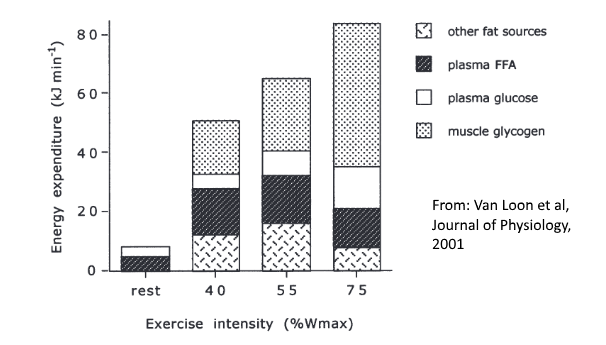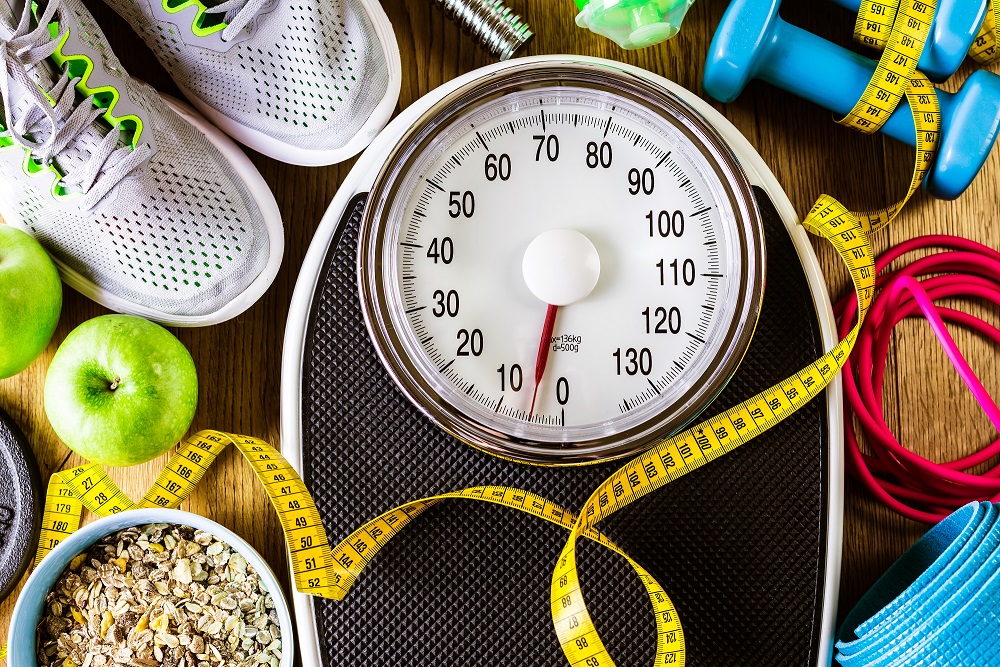Some do it for aesthetic reasons, some for health reasons – losing weight. Especially in spring, people try to get rid of some extra kilos. Can running help? Yes, if you follow some simple rules!
A lot of people are constantly concerned with how they can lose weight. It is commonly known that, in order to lose weight, you need to burn more calories than you eat. This can either happen through a reduced intake of food, or through increased physical activity, by which we can burn more calories. It is all about the calorie balance, really. So, how can I achieve a negative calorie balance through running? And what do I have to take into account? Gommaar D’Hulst, Post doc in the Laboratory of Exercise and Health at the Department of Health Sciences and Technology, ETH Zurich, has helped us answer these questions.
1) In what way does running help people to lose weight?
Increasing your energy expenditure by any form of physical activity, including running, can help to decrease body weight.
2) Can anyone lose weight with the help of running?
Anyone can lose weight, as long as he/she expends more energy (kcals) than he/she consumes. The difference between people will be how hunger is regulated after (or in between) running sessions. People who get very hungry and compensate for the expended calories will have a harder time losing weight (more on this in question 6).

3) Can you continue eating normally when you start running (or run more than before) and still lose weight, or do you always have to change your eating habits as well?
No, you do not necessarily have to change your diet. It all depends where you come from. If you already eat healthy and stay away from processed food, there is no need for change. However, if you have an unhealthy diet, it might be worth to see a registered dietitian who can put you on the right track. A healthy eating pattern, of course, makes it easier to lose weight with running.
4) So, what do you think is the ideal diet if you want to lose weight but still have enough energy for running?
Adherence is the most important thing in any diet. If you want to choose a diet, choose one you can stick to. However, as already mentioned, I would not drastically change much when the eating pattern is already healthy. By healthy I mean 35-40% carbs, 25-30% fat, 1.4g/kg protein, little sugar and a varied eating pattern. I am not in favour, and also the research is inconclusive, in completely deleting one macronutrient (like carbohydrates).
5) Is it true that you lose weight faster if you don’t eat anything a few hours before and after your runs?
This is a slippery slope since this kind of eating pattern can induce food cravings (and weight gain). Another route worth considering is intermittent fasting. Here you will have all your food intake in 8-10h time-span, for instance from 9AM to 7PM. Research is very positive (certainly in animals) about intermittent fasting. In fact, even when total calories were matched, metabolic health parameters such as the sensitivity to insulin and certain liver parameters are positively influenced by intermittent fasting. This is certainly an interesting area of research, but the combination of intermittent fasting and exercise are not fully elucidated yet.
6) Is there any formula for how many calories you burn by running?
There are probably a lot, but here is one:
MEN: Calories Burned = [(Age x 0.2017) + (Weight x 0.09036) + (Heart Rate x 0.6309) — 55.0969] x Time / 4.184.
WOMEN: Calories Burned = [(Age x 0.074) — (Weight x 0.05741) + (Heart Rate x 0.4472) — 20.4022] x Time / 4.184.
However, I personally think these formulas are mostly nonsense because there are big differences between people (large standard deviations). Generally, people tend to think that they burn more than they actually do. That is, the food compensation after a run (or other type of activity) is often too high, by which the negative calorie balance is destroyed. This is something people MUST be aware of if they want to lose weight.
7) Will your body at some point adapt to increased physical activity and not burn calories as fast anymore, like it is with diets sometimes?
There is some data indicating that very active people unconsciously adapt to the increased physical activity in two ways: 1/ they start moving around less, decrease ‘fidgeting’ and 2/ get more efficient in using the energy for a variety of bodely functions such as food digesting and immune system, thereby decreasing basal metabolic rate (what you burn in a resting state). Moreover, one of the adaptations to exercise is that the muscle will be more efficient in producing energy for a given amount of oxygen. So, after a while, people will burn less calories for a given speed than before (also because they lose body weight and therefore use less energy to move their body). Thus, in order to keep the weight loss going, a person will have to run slightly faster (and longer) over time (or, of course, eat less).
8) Is it better to run fast, slow, for a short or a long period of time if you want to lose weight?
In general, it does not matter much. Losing weight is almost exclusively determined by energy balance. Some people will like interval training more, while others will opt for long easy runs. Again, it all comes down to adherence. Of note, because the intensity is higher, interval training will burn as many calories as longer slow runs, making it perhaps a more time-efficient method for losing weight.
9) What role does your heart rate play in terms of what your body burns or how fast?
Heart rate will be an indication for when the body is in the ‘aerobic’ zone (low HR) or in the more anaerobic (high HR) zone. So, it is a good measurement of intensity.
However, that you have to stay in the ‘easy’ zone to lose weight is a myth. Let me explain briefly by the following graph:

It represents fuel utilization at different exercise intensities, 40% is easy and 75% is hard. While muscle glycogen and plasma glucose are carbohydrate related energy sources (sugar taken from the muscle and blood), muscle and plasma TG (triglycerides within the muscle or derived from the blood, “other fat sources” in the graph) and plasma FFA (blood derived fatty acids) are fat related energy sources. As it is true that at easy pace you are RELATIVELY burning more fat (around 50% carbs and 50% fats) compared to running fast (85% carbs and 15% fat), ABSOLUTELY you are still burning less or the same amount of fat than when you are exercising at harder paces. In fact, at a harder pace, the relative contribution of carbohydrates is increased and together with the fact that you are expending more energy, you will 1/burn more or a similar amount of fat and 2/ burn way more carbohydrates at high intensities as compared to lower intensities.
A side effect of high intensity training this is that the emptied energy stores will have to be refilled and your body has to recover more from a hard run. The body thus taps the energy savings in form of fat. The aerobic energy systems (fat burning) will thereofre be increased the hours after a hard training session, meaning that your body is still burning more calories than normally when at rest. This will positively influence the energy balance for weight loss.
10) Is there a certain time of the day which is best for our body to run in order to lose weight?
There is recent research indicating that PM exercise might be better performance wise, but these studies did not look into weight loss. Fasted training (after a long period without food intake, i.e. before breakfast) is popular indeed, because the body will learn to rely more (albeit slightly) on free fatty acids (fat) for energy and it will increase metabolic pathways which rely more on fat oxidation (mitochondria and select enzymes). BUT: Solely because the body gets better in metabolizing fat, that the person will NOT lose fat more quickly! You still only lose it when your overall energy balance is negative. Think about it, it is similar as with the ketogenic diet. On the ketogenic diet, you will oxidize (burn) more fat, than on a normal diet, BUT you also take in much more fat. Thus, again, it winds down to energy balance, on the ketogenic diet or when training fasted, you can gain weight if you eat more than what you expend.

11) Should one combine running with a different form of exercise in order to achieve the biggest effect?
I would suggest that strength training should always be incorporated in a training scheme of a runner. Not only because its possible beneficial effects on losing weight, but most surely because of its effect on injury prevention. Stronger muscles, together with better biomechanics will have a positive effect on the longevity of a runner’s career. Additionally, proper strength training can lead to a more favourable body composition, meaning more muscles and less fat. On the long term, this will result in a slightly higher resting metabolic rate and thus more efficient weight loss.
 Gommaar D’Hulst studied Sport Sciences and Biomedical Kinesiology at the University of Leuven, Belgium where he also gained his PhD. Currently he is working as a post-doctoral researcher at state-of-the-art “Exercise and Health” lab at ETH Zürich where his research concentrates on topics like muscle health and nutrient sensing. In his spare time you can find him in CrossFit Kreis9 for his daily Workout Of the Day. Follow Gommaar and his colleague Henning Langer on their Instagram-Account (@wod_science) for daily posts about the science behind strength training, endurance and CrossFit.
Gommaar D’Hulst studied Sport Sciences and Biomedical Kinesiology at the University of Leuven, Belgium where he also gained his PhD. Currently he is working as a post-doctoral researcher at state-of-the-art “Exercise and Health” lab at ETH Zürich where his research concentrates on topics like muscle health and nutrient sensing. In his spare time you can find him in CrossFit Kreis9 for his daily Workout Of the Day. Follow Gommaar and his colleague Henning Langer on their Instagram-Account (@wod_science) for daily posts about the science behind strength training, endurance and CrossFit.
Create a training plan for triathlon, cycling, and running based on artificial intelligence with 2PEAK that adapts to your performance after each training. Download the app and start revolutionizing your training.


